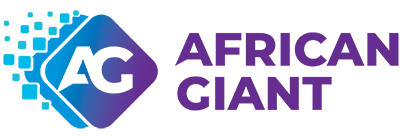Online proctoring ensures the integrity of the exam process.
Online proctoring has become a popular method for conducting remote exams in recent years as it allows for the integrity of the exam process to be maintained remotely. With the rise of online learning and the need for remote testing, online proctoring technology has been developed to ensure the integrity of the exam process. However, like any technology, it has its advantages and disadvantages. This article will explore the most significant advantages and disadvantages and why online proctoring is the future of remote testing.
What is online proctoring?
“It is the use of technology to monitor and supervise students while they take an online exam, in order to ensure the integrity of the exam process and prevent cheating. This is usually done through a combination of remote monitoring software, biometric data, and live or recorded video proctoring. The goal is to provide a secure and fair testing environment for students who take exams remotely, ensuring that the student taking the exam is the one who is registered for the course and that no cheating is taking place.”
Advantages are convenient to cost-effective, and much more.
Online proctoring offers convenience to students who can take exams from anywhere, at any time. This eliminates the need for students to travel to a physical location to take an exam, making it much more convenient for students who live in remote areas or have mobility issues. Additionally, online proctoring allows for more flexibility in scheduling exams, which can be beneficial for both students and educators.
It can be more cost-effective than traditional proctoring methods. It eliminates the need for physical proctors and reduces the need for dedicated testing centers, which can save money on labour and facilities. Additionally, online proctoring software can be purchased at a one-time cost, which can be more affordable than hiring proctors on a regular basis.
Online proctoring technology prevents cheating by using remote monitoring software, proctors can track a student’s mouse movements, keystrokes, and even their browsing history during the exam. Additionally, the use of biometric data such as facial recognition can confirm the identity of the student taking the exam, which is a great way to prevent impersonation.
It makes the grading process more efficient by using automated grading software, exams can be graded in real-time, which can save educators time and effort. Additionally, the software can flag any suspicious activity, which can help proctors quickly identify any cheating. Read more about VTEST expertise.
Understanding the challenges
It raises privacy concerns by using remote monitoring software, which makes students uncomfortable with the use of their webcam and microphone during the exam. Additionally, using biometric data such as facial recognition raises concerns about the security and privacy of this data. VTEST has taken every measure to remain GDPR compliant so that user data remains secure and private.
It poses potential technical issues by requiring students to have a reliable internet connection, a webcam, and a microphone. This can be problematic for students who live in areas with poor internet connectivity and may cause technical difficulties during the exam, which can delay the exam or even cause it to be rescheduled.
It lacks human interaction by not allowing students to interact with proctors during the exam. Additionally, proctors may not be able to pick up on nonverbal cues that a student may be cheating, making it more challenging to identify cheating.
Online proctoring is the future of remote testing.
In conclusion, online proctoring offers convenience, cost-effectiveness, and efficiency in conducting remote exams. However, it also raises concerns about privacy, technical issues, and lack of human interaction. Despite these disadvantages, it is important to note that online proctoring technology is advancing rapidly, and many of these concerns are being addressed by companies developing the technology. For example, proctoring software providers are actively working on ways to provide more transparency and communication about how the data collected during the exam is used and stored, and how to better protect students’ privacy. They also provide more options for privacy settings during the exam, such as the ability to turn off the webcam and microphone.
Online proctoring holds great potential as an effective solution to the challenges that come with remote testing. It can provide a level of security and fairness that is comparable to traditional proctoring methods and can make testing more accessible to students worldwide. With the ongoing digital transformation and the rising demand for online learning, online proctoring is becoming a crucial technology to ensure the integrity of remote exams and to create a better future for online testing. It’s important to remember that online proctoring is still a relatively new technology and there is still room for improvement and further development. However, as technology continues to advance, online proctoring will become more accurate, reliable, and secure, making it a valuable tool for educators and students.


